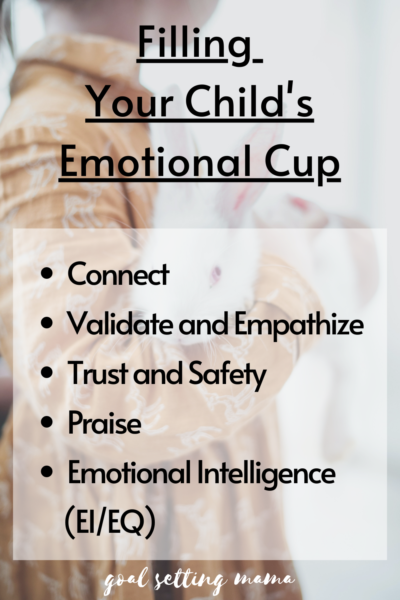AFFILIATE DISCLOSURE: This page may contain affiliate links. If you click these links and purchase something you will not pay anything extra but I may get a small commission. Thank you for your support!
By Marcelle Waldman, BA. Elem. Ed.
*Note: In the following post, I am not referring to babies or times that your child is experiencing an emergency.
You are trying to get some important work done at home. Your child is pulling at your leg, whining in your ear, or calling you over and over from the other room, “mom, mom, momma, mom, mommyyyyyy.” You feel torn between attending to your child or your work. Does this sound familiar to you? I believe all of us mompreneurs can relate to feeling this way.
As a small business owner, myself, and a mom of a 9-year-old and an 11-year-old, I have definitely felt this way over the years. Whether you have a toddler, tween, or teen, our children want and need our attention.
How can we balance the attention that our work needs, with the attention that our children need?
Our children require and deserve our attention. I often hear parents say that children’s behaviors are “purposeful” and “they are only doing it for attention.” I will let you in on a little secret, our children’s behaviors are not necessarily “attention seeking”, but rather “connection seeking”. Most often, these behaviors mean your child is looking for connection, seeking attention for a purpose. It’s important that parents and caretakers are able to go below the surface, be an emotion detective to find out the meaning behind the emotions. Whether it’s hunger, boredom, frustration, excitement, loneliness, our children are seeking connection, not intentionally behaving badly.
What do you do when your child is wanting connection and you are in the middle of work?

My first piece of advice when you are in a situation where your child is seeking connection and you are unable to give it to them is, keep your calm.
I know that it is difficult to keep calm when you feel overwhelmed and torn between attending to your child and getting your important work presentation completed.
Think about responding, rather than reacting. Responding helps us think before we act. Personally, I take a nice deep breath (or five) because it helps calm my emotional response and enables me to think about responding as my best-self.
I encourage you to find what is best to calm you so that you can respond to your child with a calm tone. Side note – in order for us parents to find our calm in stressful moments, it is vital that we take time for our own self-care. Whatever this means for you, whether it’s a walk, workout, meditation, journaling, talking with a friend or family member, reading a book or taking a class, self-care is essential for your calm parenting abilities.
Beyond keeping our calm, it’s important that we begin thinking about what actions we can take to prepare for when we are in a situation where our child is seeking connection while we need to be working.
When I think about our child’s emotional needs being met, I think of this fabulous quote by Pam Leo – “Either we spend time meeting children’s emotional needs by filling their love cup, or we will spend time dealing with behaviors caused by their unmet needs. Either way, we spend the time.”
If we think of our child as an “emotional cup”, we want to decide how to fill their cup when we are able to and curb their need for craving our connection in times when we are not available to give it to them.
How can we fill our child’s “emotional cup” so that they are not craving connection in times when we are unable?
Connect
– You need to have quality time to connect with your child. This means that you are giving your child(ren) your full attention. Turn off the TV, put away your phone, stop working on the computer. Connect by giving eye contact, talking, listening, checking in on your child’s feelings, playing games, reading, creating, or another preferred activity your child chooses. It’s also fun to create special routines that you do together. For instance, every Friday you make homemade pizza and watch a movie together.
Validate and Empathize
– Consistently showing validation and empathy will help your child feel secure and heard. When your child is experiencing tough feelings, it’s important to let them know that you hear how they are feeling and you are sorry they are having a difficult time. Use phrases such as “how can I help you with that?” “I am sorry you are feeling this way.”
Trust and Safety
– These are the foundation to a positive parent/child relationship. A high sense of security supports brain development in our children. Creating a trusting and safe home environment will support your child’s resiliency.
Praise
– Praise the small and big things. Let your child know that you are proud of them. Also, try experimenting with phrases for more intrinsic praise, such as, “I bet you are feeling really proud of yourself.”
Emotional Intelligence (EI/EQ)
– “The ability to monitor one’s own and others’ feelings and emotions, to discriminate among them and to use this information to guide one’s thinking and actions” (Mayer and Salovey, 1990). As children grow in their emotional intelligence, they are better able to recognize, understand, name, express, and regulate their feelings. As our children grow in their EI, they are building important life-long skills in self-awareness, social-awareness, self-management and relationship management (Daniel Goleman, 1995). As our children become better at communicating their feelings to us, we are better able to support their needs. I have created a tool to support children’s growth in emotional intelligence. I am the owner and creator of FeelLinks feeling journal and emotion plush dolls; a unique, hands-on resource, strengthening children’s social emotional connections and confidence.
If we can respond to our children with calm, connect with full attention, build a foundation of trust and security, give praise, model and teach emotional intelligence skills, then we are doing what we can to fill our child’s “emotional cup”. This will help us working mommas feel less guilt and more secure in times when we are unable to connect. Our children will have some reassurance that you will be playing a game, reading a book, or taking a walk as soon as you are able.
I know it can be difficult for some of us to find the time to connect without any distractions. My advice is to start small, increase the time intervals, and build in fun routines into your week.

A final thought…
Mommas, please keep up the self-care! “To be a good parent, you need to take care of yourself so that you can have the physical and emotional energy to take care of your family” -Michelle Obama
 About the Author: Marcelle Waldman, BA. Elem. Ed . Mom of 2, Parent and Community Educator, Youth Mental Health First Aid Certified, Emotional and Mental Health Advocate, Owner and Creator of FeelLinks Follow her on Facebook and Instagram @myfeellinks
About the Author: Marcelle Waldman, BA. Elem. Ed . Mom of 2, Parent and Community Educator, Youth Mental Health First Aid Certified, Emotional and Mental Health Advocate, Owner and Creator of FeelLinks Follow her on Facebook and Instagram @myfeellinks


Oh!! Yes! Yes and More Yes! This was so spot on. I always say that my kids have a “love bucket that needs to be filled every day! This was a perfect reminder as I am a homeschooling mompreneur. Thank you for your lovely thoughts and encouraging words!
I’m totally with you Dawn! Thanks for your comment!💕
Thank you for the comment! So glad this resonated with you. Bucket fillers are so important. There’s wonderful childrens books about being a bucket filler.
These are some really great thoughts and ideas you have here. Being a mom is such a journey and we learn so much along the way. Thanks for these great ideas!
I totally agree with you Michelle! Thank you for your comment!💞
Very insightful!
Thank you for your comment Teala!